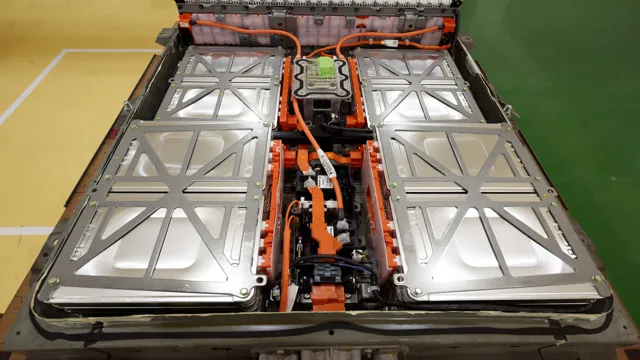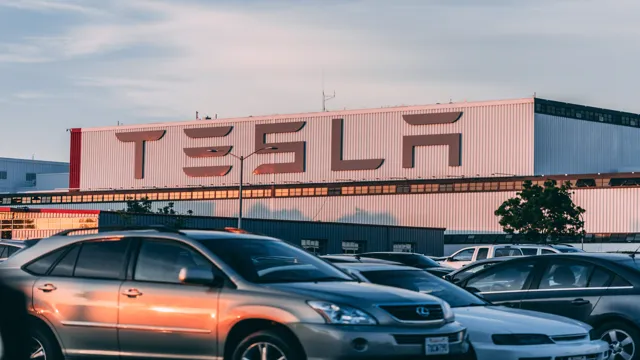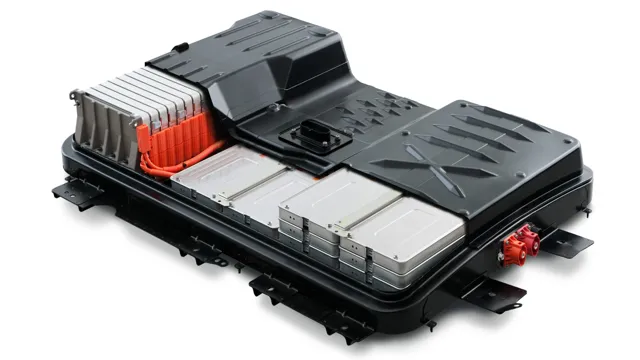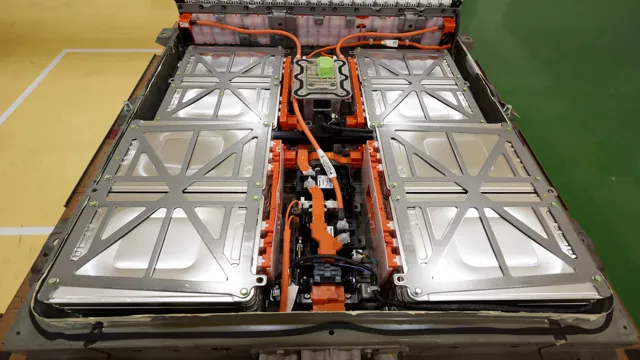Revolutionizing the Automotive Industry: Latest Updates on Electric Car Batteries
Have you ever considered switching to an electric car? With the increasing awareness of climate change and the need for sustainable living, electric cars have become a popular option for eco-conscious individuals. One of the most significant concerns with electric cars is the battery life and range. However, with the latest developments in the electric car technology, battery life is no longer an issue.
Electric car battery technology has been advancing rapidly, creating a buzz in the automotive industry. Over the years, there have been significant developments in the battery life, charging speed, and range of electric car batteries. The latest innovation in electric car battery technology is solid-state batteries.
These batteries are lighter, have a higher energy density, and can be charged faster. Companies like Toyota, Volkswagen, and Ford are investing heavily in this technology and plan to incorporate it into their future electric car models. This development is a game-changer in the electric car industry as solid-state batteries have the potential to meet the ever-rising demand for longer battery life and faster charging times.
In conclusion, the future of electric car battery technology looks promising, with new developments and innovations being made every day. Keep an eye on this space for more updates on the latest electric car battery advancements.
Tesla’s new million-mile battery technology
If you’re a fan of electric cars, you might be excited to hear about the latest breakthrough in battery technology from Tesla. The new million-mile battery is being hailed as a significant milestone in the history of electric cars and could potentially transform the industry. This new battery is expected to have a longer lifespan, hold more energy, and cost less.
This is a game-changer for electric vehicle owners since it will take much longer for them to need to replace their batteries. It also provides an incentive for people who were considering purchasing an electric car but were hesitant about battery life concerns. With this latest news, the future of electric vehicles looks brighter than ever, and we can expect more exciting developments in the years to come.
Details about Tesla’s new battery and its cost savings
Tesla has recently unveiled its latest breakthrough in the field of battery technology – the million-mile battery. This revolutionary invention promises to last up to 20 years, or one million miles, with minimal degradation. Not only is the battery itself incredibly durable, but the manufacturing process has also been optimized to reduce the cost of production.
This means that electric vehicles using the million-mile battery will be significantly cheaper to produce, and thus more affordable for consumers. Tesla has not released specific numbers, but analysts predict that the cost savings could amount to thousands of dollars per vehicle. Overall, this is a major step towards making cleaner, more sustainable transportation accessible to a wider audience.
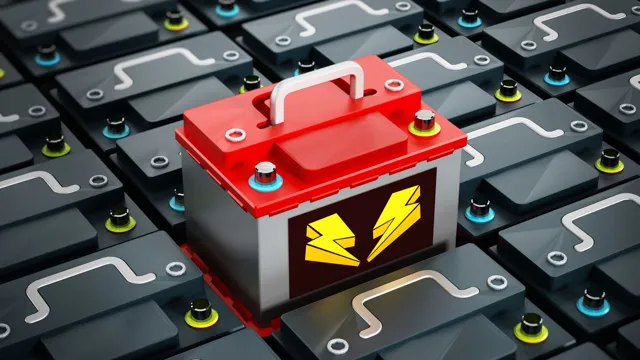
Potential to revolutionize the electric car industry
Tesla has been working on a new battery technology that has the potential to revolutionize the electric car industry. The new battery, which has already been tested and is expected to be put into production soon, promises to last a million miles before needing to be replaced. This is a significant improvement from current electric car batteries that typically last around 200,000 to 300,000 miles.
The technology behind the new battery is still mostly a mystery, but experts have speculated that it could be achieved through improvements in the battery’s chemistry or the use of new materials. In any case, a million-mile battery would make electric cars much more attractive to consumers who are currently put off by the high cost of replacing their car’s battery. The new battery would also significantly reduce the environmental impact of electric cars by making them more durable and reducing the number of batteries that need to be manufactured and disposed of.
This is a major breakthrough and a step towards a cleaner and more sustainable transportation system.
Battery advancements from major car manufacturers
Electric car battery technology is constantly advancing, with major car manufacturers leading the way in developing new and improved batteries. One such example is Tesla, who recently announced their new “4680” battery cell that is expected to provide up to 16% more range for their vehicles. Ford is also making strides in battery technology and plans to invest $185 million to develop and produce their own electric vehicle batteries.
Meanwhile, General Motors is working on a solid-state battery that could significantly reduce costs and increase range. With these advancements, the future of electric vehicles is looking brighter than ever, and we can expect to see even more breakthroughs in battery technology over the next few years. As consumers continue to demand more sustainable transportation options, the race to create better electric car batteries is only getting more intense.
GM’s Ultium battery and its capabilities
GM’s Ultium battery is a groundbreaking advancement in battery technology for the automobile industry. This new battery is set to improve the performance and efficiency of electric vehicles, making them more viable and practical for everyday use. With a range of up to 400 miles on a single charge, the Ultium battery is sure to be a game-changer in the EV market.
But it’s not just distance that the Ultium battery excels at. It also has fast charging capability, allowing for a 200-mile range to be achieved in just 30 minutes of charging. GM has been working tirelessly to refine this battery and make it more reliable and cost-effective.
With the Ultium battery, they are leading the charge in the battle against climate change and helping to create a more sustainable transportation industry. It’s exciting to see more and more major car manufacturers investing in battery technology like GM’s Ultium, and the future of electric vehicles is looking brighter than ever.
Ford’s development of solid-state batteries and its benefits
As the world of electric vehicles continues to evolve, major car manufacturers like Ford are stepping up their game to improve battery technologies. Recently, Ford announced it is working on solid-state batteries that could revolutionize the EV industry. Solid-state batteries offer several benefits over traditional lithium-ion batteries, including higher energy density, faster charging times, and increased safety.
These batteries use a solid electrolyte rather than the liquid or gel-like electrolyte found in lithium-ion batteries. The solid-state design makes them more stable and less prone to catching fire or exploding. With these advancements, Ford hopes to make EVs more efficient and affordable, bringing the world closer to a cleaner, more sustainable future.
Nissan’s plan to increase range of EVs by 30% with new battery tech
As the world transitions towards cleaner energy, major car manufacturers like Nissan are pushing the limits of battery technology to make their electric vehicles more efficient. Nissan is planning to increase the range of their EVs by 30% with new battery tech. The company aims to do this by incorporating a new metal-ion chemistry into their batteries that will allow for increased energy density.
This means that the batteries can hold more energy, enabling the cars to travel further on a single charge. Nissan’s new battery advancements are just one example of the many strides being made in the EV industry. As companies continue to innovate, it’s becoming increasingly clear that EVs are the future of transportation.
With improved battery technology, EVs will become more accessible and practical for everyday use, helping to reduce our carbon footprint and move towards a more sustainable future.
Charging infrastructure updates for electric cars
The latest news on electric car batteries has a lot to do with charging infrastructure updates. As the demand for electric cars continues to rise, there are concerns that the charging stations won’t be able to keep up with the surge. However, companies are now stepping up to invest in and deploy new charging technologies and infrastructure to support the growing number of electric vehicles on the road.
Some cities are even rolling out plans to install charging points on residential streets to make it even more convenient and accessible for people to charge their cars. As more and more people make the switch to electric cars, it’s clear that the industry is heading towards an exciting and sustainable future.
Residential charging solutions for those without a garage
With the rise of electric cars, it’s becoming increasingly important to have accessible charging infrastructure. However, many people without a garage or driveway may feel left out of the electric vehicle revolution. Fortunately, there are residential charging solutions available that can be tailored to fit your specific needs.
One option is to install a charging station in a designated parking space or carport. Another option is to use a portable charging unit, which can be plugged into a standard electrical outlet and stored when not in use. And for those in multi-unit dwellings, there are community charging solutions that can be installed in shared parking areas.
No matter what your living situation is, there are options available to ensure you have access to reliable and convenient charging for your electric car. So, don’t let the lack of a garage stop you from making the switch to an electric vehicle – take advantage of these residential charging solutions and join the green revolution today!
Global expansion of fast-charging stations
Electric car owners have long been waiting for the expansion of fast-charging stations. Finally, the year 2021 is expected to see a significant increase in the number of charging points globally. Many countries have already announced ambitious plans to create a vast network of fast-charging stations to serve the growing electric vehicle market.
For instance, Europe has set a target of creating one million public charging points by 2024, while the United States plans to install 500,000 charging stations by 2030. This coordinated push towards ramping up the charging infrastructure will be an important step to encourage people to switch to electric vehicles. It will also ease range anxiety, one of the main obstacles that hinder widespread adoption of electric cars.
So buckle up, and get ready to enjoy the ride without worrying about the dwindling battery life, as more fast-charging stations are about to become your new best friends.
Government policies impacting EV battery development
Governments around the world have initiated policies to encourage electric car battery development, recognizing the crucial role electric vehicles play in reducing carbon emissions. The EU has announced plans to invest 9 billion euros in the development of the next generation of EV batteries.
In the US, President Biden’s $2 trillion infrastructure plan includes provisions for the expansion of EV charging infrastructure and tax incentives for the purchase of electric cars. In China, the government has set ambitious targets for EV sales and plans to invest heavily in battery technology. These policies are expected to drive innovation in the EV battery sector, resulting in longer-lasting, cheaper and more efficient batteries that could ultimately make electric vehicles a mainstream mode of transport.
As such, the electric car battery latest news is eagerly awaited by those following developments in this area.
Tax credits and subsidies for electric vehicles
One of the biggest driving forces behind the development of electric vehicle (EV) batteries has been government policies incentivizing their adoption. Tax credits and subsidies have played a major role in boosting the popularity of EVs, making them a more financially feasible option for consumers. Many countries around the world have implemented these policies in an effort to reduce carbon emissions and promote sustainable transportation.
Additionally, some governments have implemented policies that require automakers to produce a certain percentage of zero-emission vehicles or face penalties. These regulations have pushed automakers to invest more heavily in EV battery technology and innovation. The result has been a burst of activity in the industry, leading to breakthroughs in battery design, including increased energy density and faster charging times.
As governments continue to prioritize the electrification of transportation, we can expect to see even more advances in EV battery technology in the future.
Regulations for disposal and recycling of batteries
One of the biggest concerns surrounding electric vehicle (EV) batteries is their disposal at the end of their life. To address this issue, governments around the world have implemented regulations for the proper disposal and recycling of these batteries. In the US, regulations such as the Battery Act and the Resource Conservation and Recovery Act require that EV manufacturers develop and implement a collection and recycling program for their batteries.
Similarly, the European Union’s Waste Electrical and Electronic Equipment (WEEE) Directive sets targets for the recovery and recycling of EV batteries. These policies have spurred innovation in battery recycling technologies that enable the recovery of valuable materials like lithium and cobalt. However, the complexity of these regulations can also create challenges for manufacturers and consumers alike.
It’s essential to strike a balance between protecting the environment and ensuring the continued development of EV batteries, which are critical in the transition to a low-carbon economy.
Conclusion
In conclusion, the electric car battery latest news is an electrifying update on the future of transportation. With advancements in battery technology, we’re seeing longer ranges, faster charging times, and increased affordability. It’s clear that the future is electric, and we can’t wait to see what new developments will emerge in the years to come.
So get ready to plug in and take off – the electric revolution is here, and it’s charged up and ready to go!”
FAQs
What is the current status of electric car battery technology?
Electric car battery technology is constantly evolving and improving. The latest news suggests that manufacturers are focusing on developing batteries with higher energy density, longer lifespan, and faster charging capabilities.
How long does it take to charge an electric car battery?
The time it takes to charge an electric car battery depends on various factors such as the size of the battery, the type of charging station, and the charging speed. With the latest fast-charging technology, some electric cars can be charged up to 80% in just 20-30 minutes.
What is the range of electric cars with the latest battery technology?
The latest electric car batteries have significantly improved the driving range of electric cars. Some electric cars can now travel up to 300-400 miles on a single charge, which is comparable to the range of gas-powered cars.
How much does it cost to replace an electric car battery?
The cost of replacing an electric car battery depends on various factors, such as the make and model of the car, the size of the battery, and the warranty coverage. Generally, the cost can range from a few thousand dollars to tens of thousands of dollars, but some manufacturers offer battery replacement programs that can reduce the cost for consumers.
